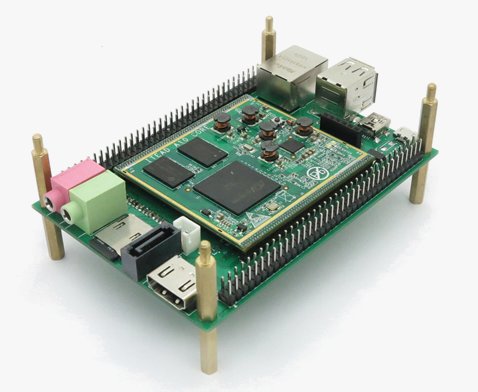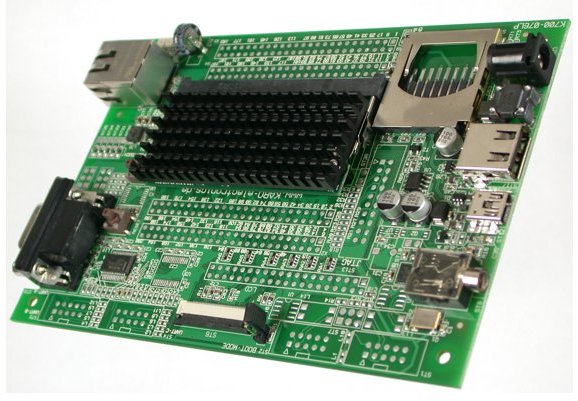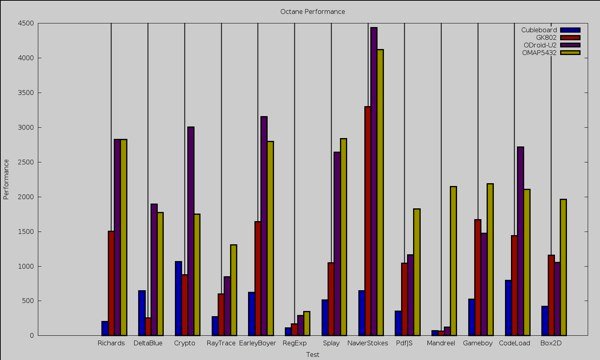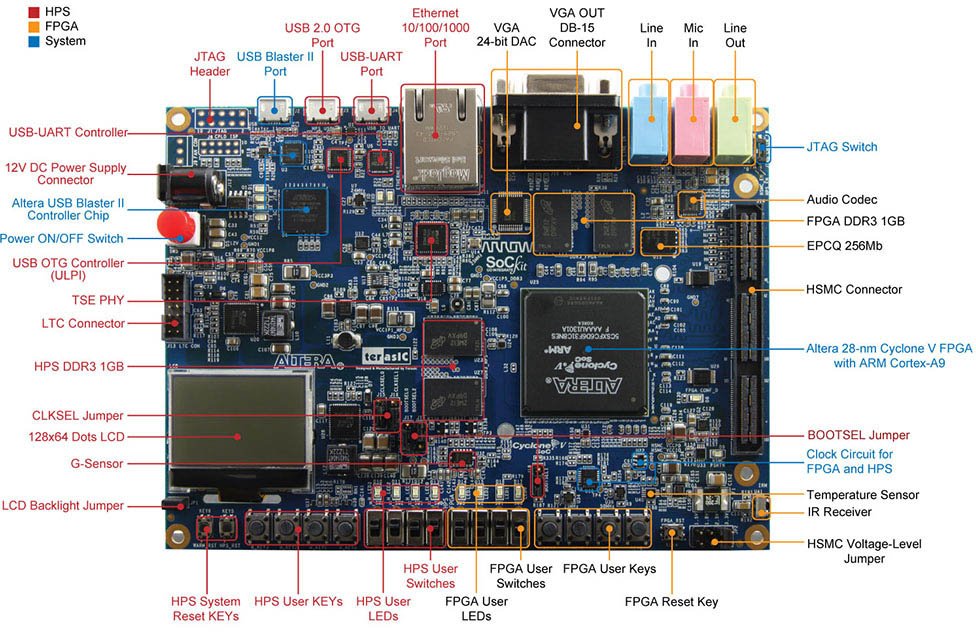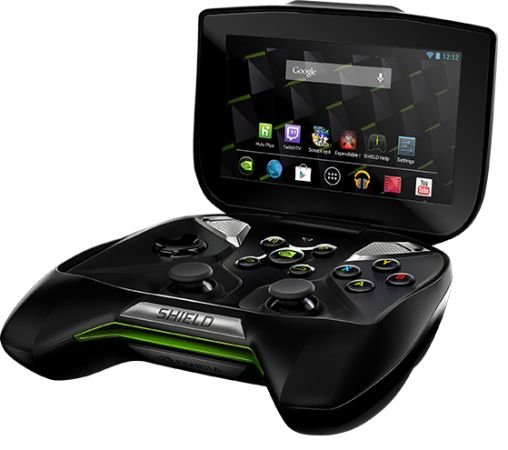I’ve just received an email from the Linux Foundation saying the schedule for LinuxCon and CloudOpen Europe 2013 had been made available. The conference will take place for 3 days (October 21-23, 2013) in the Edinburgh International Conference Center, Edinburgh, United Kingdom. There will be over 100 conference sessions, and several co-located events including: Automotive Linux Summit, the Embedded Linux Conference, Gluster Workshop, KVM Forum, Tizen Summit, Xen Project Developer Summit. As I’ve recently done with LinuxCon North America 2013 and ARM TechCon 2013, I’ll make a virtual schedule with selected developer sessions using the event’s schedule builder. You may find out several sessions will also be given in LinuxCon North America. Monday – 21st of October 11:00 – 11:50 – Bluetooth Smart Devices and Low Energy Support on Linux by João Paulo Rechi Vita, INdT This presentation will cover a brief introduction on how the Bluetooth Low Energy technology […]
$59 Iteaduino Plus ARM Linux Board Features Raspberry Pi and Arduino Compatible Headers
Iteaduino Plus is a development platform designed by ITEAD studio, a Shenzhen based company, powered by AllWinner A10 with 1GB RAM, a micro SD card slot, expansion header, etc… Overall features are very similar to the Cubieboard, but the platform is comprised of a baseboard and a CPU module. The baseboard features a 26-pin GPIO header compatible with the one on the Raspberry Pi, and you can add an expansion board to connect Arduino Shields. Iteaduino Plus specifications: SoC – AllWinner A10 Cortex A8 @ 1GHz with Mali400 GPU System Memory – 1GB DDR3 @480MHz Storage – 1x micro SD slot, 1x SATA Video Output – HDMI Connectivity – 10/100M Ethernet USB – 2x USB Host, 1x USB OTG Audio – 3.5mm Audio in and out jacks Expansion headers (see pin assignment) 2x 2×36-pin (Total 144, but not all used) – I2C, SPI, RGB/LVDS, CSI/TS, FM-IN, ADC, CVBS, VGA, SPDIF-OUT, […]
KVM on 64-Bit ARM with AppliedMicro X-Gene Developement Platform
Applied Micro announced X-Gene 64-Bit ARMv8 Server-on-Chip at ARM Techcon 2011, and later in 2012, they showcased Apache2 on an FPGA implementation of the chip. More recently, they showcased KVM (Kernel-based Virtual Machine) on their X-C1 hardware platform with an actual X-Gene SoC at Linaro Connect Europe 2013, and Linaro has just uploaded the video of the demo. The development board features 8 ARMv8 64-bit processors, PCI network, up to 6 SATA drives (but only one used in the demo), and they also have hardware fitted into a 1U rack. The demo below runs 4 SMP Linux virtual machines (with 2 VCPUs), including 2 ARMv7 32-bit, and 2 ARMv8 64-bit guests, running web servers concurrently on each VM using VirtIO-based network virtualization. Jean-Luc Aufranc (CNXSoft)Jean-Luc started CNX Software in 2010 as a part-time endeavor, before quitting his job as a software engineering manager, and starting to write daily news, and […]
$200 Direct Insight Triton-TXEK EvalKit for iMX6 Features Freescale i.MX 6Quad Processor
With Wandboard Quad, SABRE Lite, Nitrogen6X, and UDOO, we already have some choices when it comes to low cost Freescale i.MX 6Quad development platforms. Direct Insight, a British company, has developed another called TRITON-TXEK EvalKit for iMX6 that includes the company’s Triton-TX6Q SoM, for 130 GBP (about $200). TRITON-TXEK for iMX6 Specifications: Specifications listed for the Triton-TXEK evaluation kit include: SoC – Freescale i.MX 6Quad quad core Cortex-A9 @ 1GHz with Vivante GC2000 GPU System Memory – 1GB DDR3 Storage – 128MB NAND flash + SD card slot Display – TFT panel via 40-pin LCD flat cable header Connectivity – 10/100M Ethernet USB – USB 2.0 host + mini USB 2.0 host/device Serial – RS232on D-Sub connector Audio – 3.5mm headphone jack Power Supply – 5V Dimensions – Module: 68mm × 31mm, Baseboard: Who knows… Operating temperature – -20 to 70°C Since the only easily accessible display option is the […]
MEN Mikro Elektronik BL50W is an Embedded PC For Wireless Applications with up to 9 Antennas
MEN Mikro Elektronik Gmbh, a German company specialized in industrial embedded boards and systems, has recently unveils BL50W, an embedded PC powered by AMD G-Series APU targeting wireless applications for transportation: trains, buses, construction and agricultural machines or airplanes. The rugged device provides nine antenna slots, with support for up to 8 SIM cards and a GPS interface. BL50W Specifications: Processor – AMD G-Series single or dual core APU from AMD T24L to AMD T56N (13 Processor options). The standard version comes with AMG G-series T48N Dual Core processor @ 1.4 GHz with AMD Radeon HD 6310 GPU System Memory – 2GB DDR3 SDRAM (4GB optional) Storage – SD card slot, mSATA slot (Up to 3Gb/s), and SATA 3.0 (Up to 6Gb/s) Graphics – Radeon HD 6310 GPU by default with dual independent display support, dual DisplayPorts, and 2560×1600 maximum resolution. Video – Dedicated hardware (UVD 3) for H.264, VC-1 […]
Texas Instruments OMAP5432 EVM Benchmarked Against ODROID-U2, BeagleBone Black, GK802… and an Intel Core i7-2600K based PC
Texas instruments and SVTronics announced an OMAP5 evaluation board a couple of months ago. The board features OMAP5432 dual Cortex A15, dual Cortex M4 SoC, 2GB RAM, a 4GB eMMC module, USB 3.0, SATA and more. SVTronics sent a board to Linux.com, where they wrote a short review, followed by an article benchmarking the OMAP5 EVM against AllWinner A10, Freescale i.MX6, Exynos 4412 Prime, and TI Sitara platforms, namely Cubieboard, GK802, ODROID-U2, and BeagleBone Black, all running Linux. Ben Martin, the writer, also benchmarked the board against a Linux PC powered by an Intel Core i7-2600K processor (4 cores, 8 thread, clocked at 3.4GHz, with a turbo frequency up to 3.8GHz). The board used was an early version, clocked at 800MHz, and later in September, all boards will be clocked at 1.5Ghz, so for benchmarks that stress the CPU, you could expect almost double the performance. With that in mind, […]
$249 Terasic SoCKit Development Kit Features Altera Cyclone V SX Dual Core A9 + FPGA SoC
There seems to be a lot a development going on around dual core A9 + FPGA SoCs from Xilinx or Altera these days, and Terasic has recently announced SoCKit, a development board based on Altera Cyclone V SX SoC with 2GB RAM (1GB for ARM cores, 1GB for FPGA), 110K logic elements, etc… Here are the specifications listed on Terasic website: FPGA Device – Cyclone V SX SoC—5CSXFC6D6F31C8NES: 110K LEs, 41509 ALMs 5140 M10K memory blocks 6 FPGA PLLs and 3 HPS PLLs 2 Hard Memory Controllers 3.125G Transceivers ARM-based hard processor system (HPS) @ 800 MHz, Dual-Core ARM Cortex-A9 MPCore Processor with 512 KB of shared L2 cache, 64 KB of scratch RAM, Multiport SDRAM controller (DDR2, DDR3, LPDDR1, and LPDDR2), and 8-channel direct memory access (DMA) controller Configuration and Debug: Quad Serial Configuration device – EPCQ256 for FPGA On-Board USB Blaster II (micro USB type B connector) Memory […]
NVIDIA Releases Source Code, Binaries, and Android Build Instructions for the SHIELD Gaming Console
This morning I’ve read bad news for the open source community. Jean-Baptiste Quéru, leader of the Android Open Source Project (AOSP) has decided to quit the project because AOSP cannot run on the latest Nexus 7 as Qualcomm (lawyers) impeded the project, and Google is unable to released factory images or necessary binary drivers for the GPU. But there’s also good news, as Nvidia has just released source code and binaries to allow developers to fully build an Android image for its SHIELD gaming console. If you want to build an image for the latest image available, following the steps below. Get the code
|
1 2 3 4 |
mkdir ~/shield-open-source cd ~/shield-open-source repo init -u git://nv-tegra.nvidia.com/manifest/android/binary.git -b rel-roth-ota-1-partner -m secureos/jb_roth.xml repo sync -j5 |
Build the Android image (Provided you’ve already setup your Linux PC do build AOSP):
|
1 2 3 4 5 6 7 8 9 |
cd ~/shield-open-source export TOP=`pwd` cd vendor/nvidia/licensed-binaries ./extract-nv-bins.sh cd $TOP . build/envsetup.sh setpaths lunch thor-userdebug mp dev |
Done (mp dev took about one hour for my machine). You should now have the required binary images in out/target/product/roth/ directory. Enter fastboot mode before flashing the binaries by one […]



